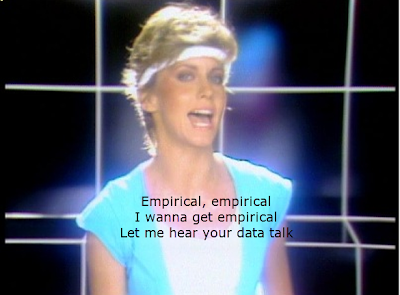Eli has always pointed out the moral dimension to humans ruining the blue marble, and how this burden falls upon those at the bottom of the barrel.
We are sailing into a moral storm.
The moral dimensions associated with the Anthropocene has long
interested Eli, and to be honest many others on a deeper level. While
philosophy is associated with personal responsibility, law concerns
itself with assignment of responsibility to others. As our command of
the Earth increases, these must come together
In particular
the Bunny has relied upon
Stephan Gardiner's description of climate change as a perfect moral storm
the presence of the problem of moral corruption reveals
another sense in which climate change may be a perfect moral storm. This
is that its complexity may turn out to be perfectly convenient for us,
the current generation, and indeed for each successor generation as it
comes to occupy our position. For one thing, it provides each generation
with the cover under which it can seem to be taking the issue seriously
– by negotiating weak and largely substanceless global accords, for
example, and then heralding them as great achievements – when really it
is simply exploiting its temporal position. For another, all of this can
occur without the exploitative generation actually having to
acknowledge that this is what it is doing. By avoiding overtly selfish
behaviour, earlier generations can take advantage of the future without
the unpleasantness of admitting it – either to others, or, perhaps more
importantly, to itself.
The storm has arrived
The
cop outs are accumulating
Japan could set a new 2020 emissions reductions target of 3.8% on 2005 levels, the Nikkei newspaper reports.
It says Minister of the Environment Nobuteru Ishihara will announce the new goal at UN talks in Warsaw next month
.
If accurate, the new goal would be considerably lower than the 25%
emissions reduction on 1990 levels Japan agreed to aim for in 2009.
Todd Stern, the US lead in the climate negotiations was not helpful.
He laid out a position that the US and the other rich nations would not provide the needed funding. No, really no.
Munjurul Hannan Khan, representing the world's 47 least affluent
countries, said: "They are behaving irrationally and unacceptably. The
way they are talking to the most vulnerable countries is not acceptable.
Today the poor are suffering from climate change. But tomorrow the rich
countries will be. It starts with us but it goes to them."
In light of all this, Eli's friend Dano has a question
-------------------------------------------------------
In the wake of the destruction from recent typhoons
Phailin and
Haiyan - Haiyan being the third “most destructive” storm ever in the Philippines in the span of 12 months*, I’ve been reflecting on my membership in the
National Adaptation Forum (NAF).
Many members of the NAF signed up because they found themselves suddenly thrust into a newly-created position and are simply trying to find their way forward and seek other voices of sanity. Plus there is the advantage, in my view, that it is easier to get traction and a few words in a comprehensive plan by saying you want to
adapt to changes instead of spending money to reduce emissions to
mitigate future changes, so at least there is something to plan for. Cynical, I know: but this is Dano, remember? Mitgation costs money, and who spends money on the commonweal these days? That is: who seriously is considering flood barriers in New York in the wake of Sandy, to control the sea like the Dutch have done?
But back to adaptation: who were the victims of Phailin and Haiyan? The rich in their fortified and provisioned hilltops, or the lowland poor? That question raises the important question of “who pays for adaptation, and who pays for mitigation?” Or perhaps a related question: “who can afford adaptation protection?” That’s right: the rich can afford to purchase grain, no matter how high the price goes, and the rich already live on high ground, protected from sea level rise and flooding from episodic downpours.
There is no doubt the incidences of severe weather are increasing
and insurers are increasingly incurring losses from severe weather events. But what of the uninsured losses that rarely make the news?
When we talk about adaptation, we should ask “adaptation for whom”, because right now, the answer is “those who can afford it”. Concepts like resilience and “sustainability” (whether we can ever be “sustainable” must wait for another post) are ignored when all we do is adapt. And adaptation is for those people in the future, anyways. Oh sure, mitigation has benefits in the future as well, which is another reason adaptation is so compelling an argument if you don’t think too much about it.
*Dano wrote this soon after Haiyan passed over the islands and before she struck Vietnam, although she appeared to be recurving as of the 21z sat foto.
 after battling the Black Friday crowds, or are simply sitting in the emergency room waiting for word on your loved one trampled at Walmart, read the Amazon reviews for the Denon AKDL1 ethernet cable
after battling the Black Friday crowds, or are simply sitting in the emergency room waiting for word on your loved one trampled at Walmart, read the Amazon reviews for the Denon AKDL1 ethernet cable















